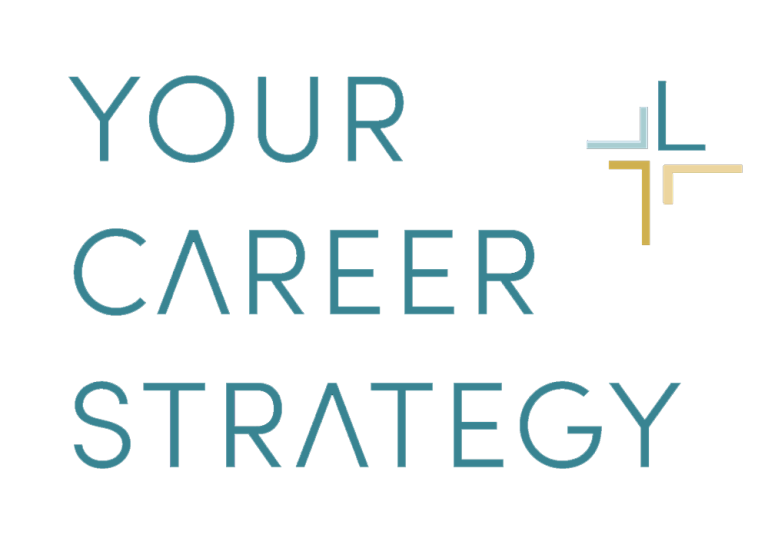Top 10 Career Fair Mistakes Students Make (And How to Avoid Them)
If you’ve ever been to a career fair and walked out feeling like you might’ve done everything wrong, trust me — you’re not alone.
I still remember the career fair I went to at Seton Hall when I was in college. I had no plan, no strategy, and definitely no memorable elevator pitch. When I finally worked up the courage to talk to a recruiter, I stumbled on my words, said nothing valuable, and immediately regretted my decision the moment I walked away.
That experience stuck with me for years. Not because it was embarrassing (even though it was), but because it taught me just how important preparation is.
Career fairs can open doors — but only if you know how to use them.
What You’ll Learn After Reading This Article
The most common mistakes students make at career fairs — and why they matter.
How to avoid each mistake with simple, repeatable strategies.
How to turn every career fair into a networking opportunity that moves your career forward.
The Top 10 Career Fair Mistakes Students Make
Let’s walk through the mistakes that hold most students back — and how you can avoid repeating them at your next career fair.
Mistake #1: Not Researching Companies Before You Go
One of the biggest reasons students walk out of a career fair empty-handed is simple: they never took the time to research who was going to be there.
And I get it. When I went to my career fair at Seton Hall, I didn’t even think to look up the companies ahead of time. I walked in blind, hoping something good would just happen.
The problem?
Career fairs aren’t about luck — they’re about alignment.
Why This Hurts You
If you don’t know:
• what roles the company hires for
• what the company actually does
• what skills they value
…you won’t be able to hold a meaningful conversation.
What To Do Instead
• Review the event’s employer list.
• Choose 5–10 companies to focus on.
• Read their website, open roles, values, and recent news.
• Write down 2–3 smart questions to ask each recruiter.
Mistake #2: Having a Weak or Forgettable Elevator Pitch
My elevator pitch at Seton Hall was a complete disaster. It didn’t communicate who I was, what I wanted, or why the recruiter should care.
Your pitch is your first impression — and you only get a few seconds to make it count.
Why This Hurts You
Recruiters talk to hundreds of students. If your introduction sounds generic, you won’t stand out.
What To Do Instead
Use this structure:
Who you are
What you’ve done
What you’re looking for
Why you’re interested in their company
Then practice until it feels natural.
Mistake #3: Showing Up Without Enough Resumes (Or With a Bad One)
Many students bring three resumes… or none. Others show up with outdated versions that haven’t been updated since high school.
Why This Hurts You
Recruiters won’t chase you down later. If you don’t have a resume ready, it signals you’re not prepared.
What To Do Instead
• Bring 10–20 printed copies.
• Have a digital version ready for QR submissions.
• Make sure your resume can be scanned in 6–7 seconds.
• Add your LinkedIn link at the top.
Bonus: Create a one-page “Value Snapshot” — a highlight sheet of your top wins.
Mistake #4: Asking Boring, Generic Questions
Many students walk up to a booth and ask:
“So… what do you guys do?”
This question tells recruiters one thing: you didn’t prepare.
Why This Hurts You
Generic questions make you blend in with everyone else.
What To Do Instead
Ask smarter questions like:
• “What skills do your best interns have?”
• “What makes your early-career program unique?”
• “What does growth look like on your team?”
Mistake #5: Not Asking for Contact Information
Students often walk away without grabbing a recruiter’s name or email.
Why This Hurts You
Without contact info, you can’t follow up — which means the conversation basically never happened.
What To Do Instead
Say:
“Could I grab your email or business card so I can follow up?”
Then send a message that evening or the next morning.
Mistake #6: Skipping Booths Because You’ve Never Heard of the Company
Most students only approach companies they recognize.
Why This Hurts You
Many of the best employers don’t have big, recognizable names. You might miss out on internships you’d love.
What To Do Instead
Visit 2–3 booths you’re unfamiliar with. You might discover a hidden opportunity.
Mistake #7: Not Practicing Before the Event
Career fairs feel awkward when you haven’t practiced the basics.
Why This Hurts You
If your first attempt at introducing yourself is in front of a recruiter, you’ll stumble.
What To Do Instead
Practice with a friend or record yourself on your phone. Even five minutes helps.
Mistake #8: Forgetting to Follow Up Afterward
The fair isn’t the finish line — it’s the starting point.
Why This Hurts You
If you don’t follow up, recruiters forget you.
What To Do Instead
Send a short message thanking them for their time and mentioning a part of your conversation.
Mistake #9: Treating the Fair Like a Job Offer Machine
Many students walk in expecting an offer on the spot.
Why This Hurts You
Career fairs are for networking, not hiring. Expecting a job offer creates pressure and disappointment.
What To Do Instead
Approach the fair as a learning and connecting opportunity.
Mistake #10: Not Having a Plan for the Day
Without a plan, you’ll wander around, waste time, and miss key companies.
What To Do Instead
• Map out your top 5–10 booths.
• Prioritize your must-see employers.
• Leave time for spontaneous conversations.
• Build in short breaks so you don’t burn out.
Frequently Asked Questions About Career Fairs
Q: Do I need to dress professionally even if it’s a casual event?
A: Yes. Recruiters remember the students who look prepared. Business casual is almost always the right call.
Q: What if I don’t have much experience yet?
A: Focus on class projects, volunteer work, leadership roles, and skills you’re developing. Recruiters want potential.
Q: Are virtual career fairs easier or harder than in-person fairs?
A: They’re different. Virtual fairs require stronger communication skills and preparation, but they also let you meet more employers from anywhere.
Final Thoughts: You’re More Ready Than You Think
Career fairs can feel intimidating — especially when you’ve had an experience like mine at Seton Hall where every word comes out wrong and you immediately regret your decision. But you learn. You improve. You get better every time.
If you avoid the mistakes above and prepare intentionally, you’ll walk into your next career fair with confidence and walk out with meaningful connections that move your career forward.
You’re capable of more than you realize.
Now go prove it.





